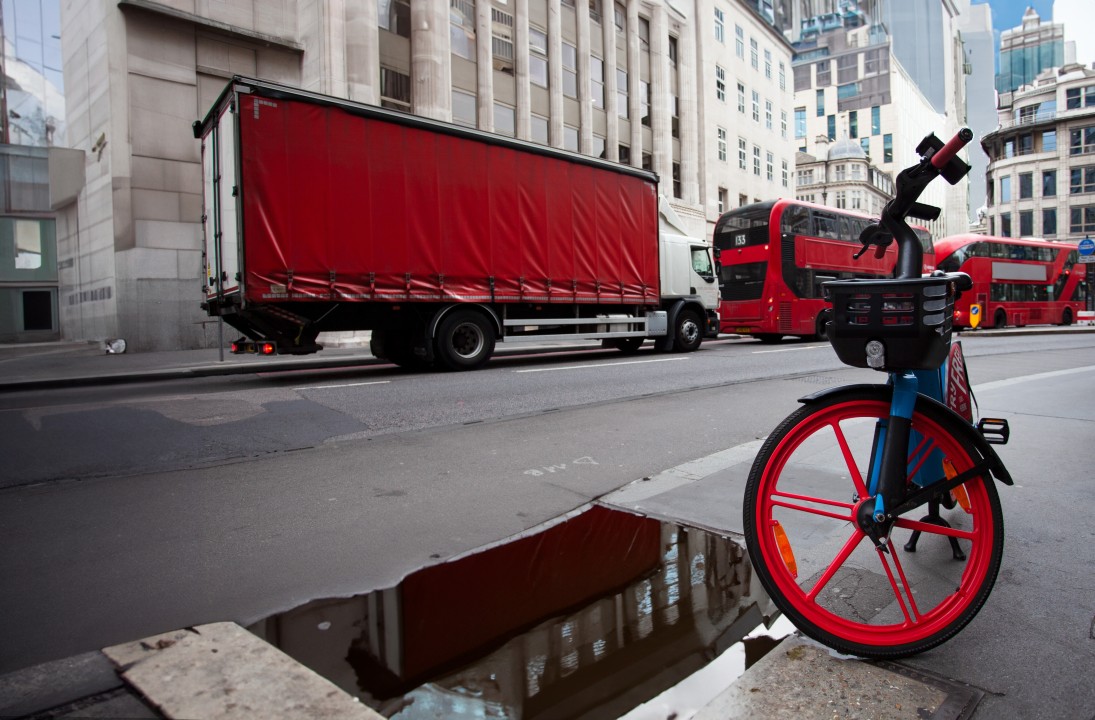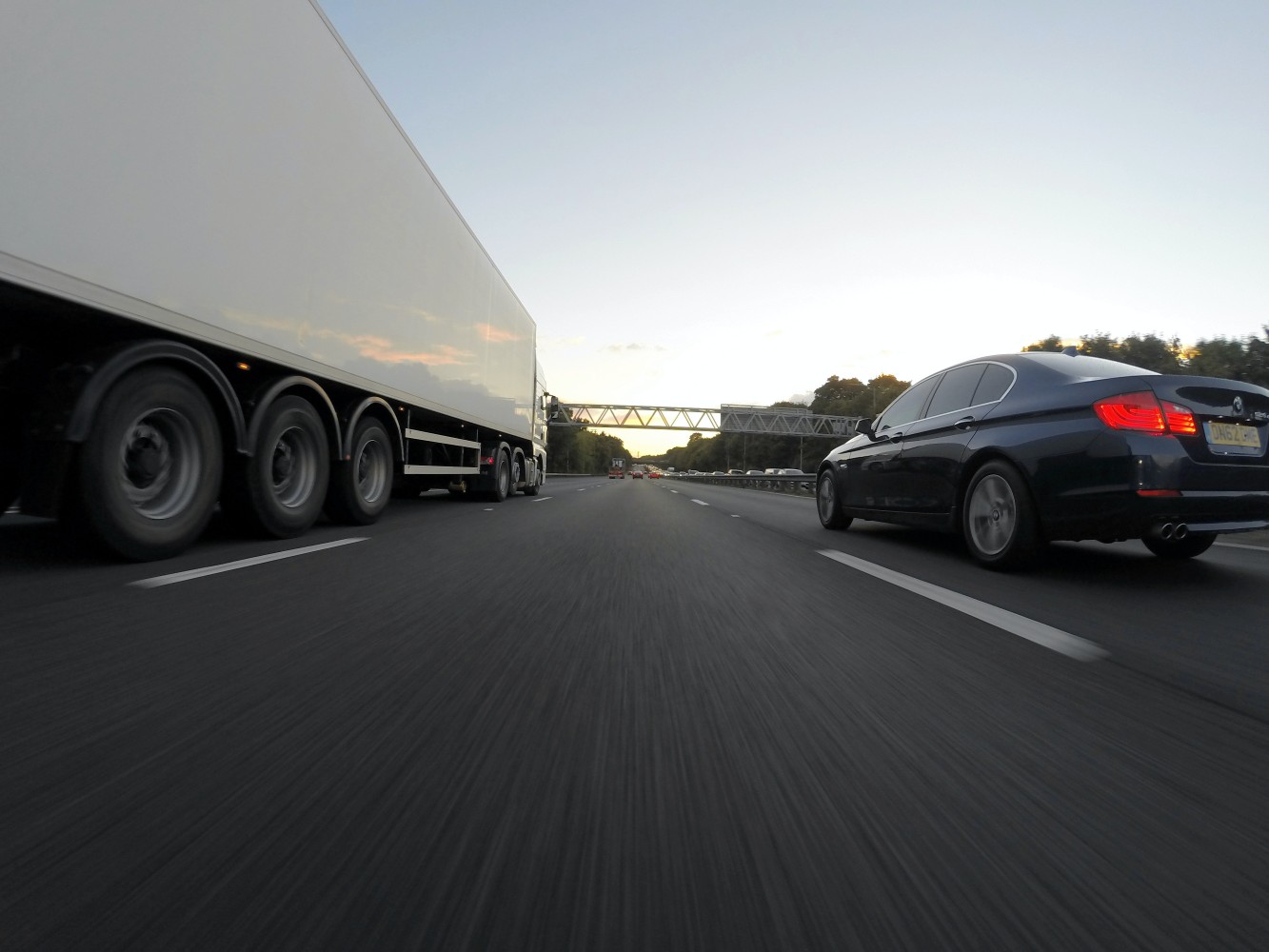
Susie Jones
Пет развенчани мита за камионите
Създаден: 19.08.2024
•
Актуализирано: 19.08.2024
В продължение на векове шофирането на камиони е било гръбнакът на световната търговия - те са доставяли стоки и предмети от първа необходимост по целия свят. Въпреки важната си роля обаче, шофирането на камиони отдавна е забулено в митове и заблуди.
Въпреки че някои от тези митове се приемат с лека ръка, някои от тях могат да навредят на сектора на товарните превози и на работещите в него. Ето защо е от първостепенно значение да развенчаем тези погрешни схващания, за да гарантираме, че шофирането на камион ще остане привлекателен избор на кариера за бъдещите поколения. Попитахме нашата общност от шофьори във Facebook за някои от най-големите митове, които са чували по време на кариерата си.
1. Шофьорите на камиони седят по цял ден
"Всичко, което правят шофьорите на камиони, е да седят по цял ден." Фраза, която често се чува от шофьорите на камиони, Лука.
Светът на товарните превози е нещо повече от шофиране. Шофьорите на камиони често работят с други хора на терминали, докове и складове, за да разтоварват и товарят товари. Зад волана също не всичко върви гладко. Шофьорите на камиони трябва да се концентрират върху маневрирането на превозните си средства и да спазват строги правила за тахографите. Задължително е да познават добре районите, в които могат и не могат да шофират, както и да са наясно с потенциалните опасности.
2. Всички шофьори на камиони са мъже
Това е остарял стереотип, който не отразява съвременната реалност в автомобилния транспорт. Напоследък се наблюдава значителна промяна в съотношението между мъжете и жените шофьори на камиони. През 2021 г. жените шофьори съставляват едва 1% от 315 000 шофьори на камиони в Обединеното кралство. Въпреки това този брой се увеличава с всяка изминала година, тъй като индустрията се развива и възприема приобщаването. Шофьори като Джоди Смит са безценни застъпници на жените в бранша. Джоди документира своя опит в областта на товарните превози онлайн, като вдъхновява други да седнат зад волана.
3. Всеки може да кара камион
Мнозина смятат, че щом могат да карат кола, значи могат да карат и камион. Шофирането на камион обаче изисква уникален набор от умения, които може да не са подходящи за всеки. Управлението на камион с търговска цел изисква придобиване на свидетелство за професионална компетентност на водача (CPC). За да получат CPC, водачите трябва да преминат през пет теста:
Теория
Проучване на случай
Упражнения извън пътя
Шофиране на пътя
Практически демонстрации
Освен това шофирането на камион изисква начин на живот, който не е за всеки - с дълги изолирани часове на пътя, които често представляват неочаквани предизвикателства.
4. Спирачен път
"Шофьорите на автомобили смятат, че спирачният път на тежкотоварен автомобил е същият като на лек автомобил" - това е нещо, което шофьорът на камион Пол е чувал твърде много пъти.
Спирачният път на камион се различава значително от този на автомобил поради няколко фактора: - Тегло: общото тегло на натоварен камион е по-голямо от това на типичен лек автомобил, което означава, че е необходима по-голяма сила за намаляване на скоростта и спиране.
- Механика: спирачната система на камионите е пригодена за тежки товари, което означава, че те имат по-големи и по-здрави оси и спирачни компоненти, което води до по-дълго време за реакция и по-голям спирачен път.
При скорост от 60 км/ч камионът има нужда от 132 м за спиране в сравнение със 73 м за лек автомобил - това показва колко е важно да оставите достатъчно място между себе си и камиона при интензивно спиране.

5. Шофьорите на камиони са мръсни
С течение на годините шофьорите на камиони са получили стереотип на мръсни и мързеливи хора - несправедливо обобщение. Много шофьори на дълги разстояния прекарват много време извън дома и в кабините си - което означава, че хигиената и чистотата на кабините им са приоритет.
От решаващо значение е да се разсеят митовете и заблудите, свързани с шофирането на камион, за да се разбере по-добре тази професия. Развенчаването на някои от разпространените митове ще създаде по-привлекателна индустрия за бъдещите поколения и ще повиши осведомеността за шофирането на камиони като висококвалифицирана професия, която играе важна роля в нашата икономика.
Самотен ли е превозът на камиони?
Преди да се замислите за кариера на шофьор на камион, е важно да разберете какво включва тази работа. Проблем за много шофьори на камиони е справянето със самотата - дългите часове на път с малко или никаква комуникация са трудни за някои, но са мечта за други.
Освен това времето, прекарано далеч от любимите хора, може да се отрази зле на мнозина. Въпреки това, за шофьорите стана по-лесно да общуват с приятелите и семейството си по телефона или чрез видеоразговор. На разположение на шофьорите на камиони са и множество форуми и полезни съвети за облекчаване на самотата.
Може ли шофьор на камион да има втора работа?
Тъй като Обединеното кралство преживява кризата с разходите за живот, все повече шофьори обмислят втора работа. Втората работа обаче е свързана с проблеми и рискове, особено в света на камионите. Преди да продължат, шофьорите трябва да преценят дали в тяхната компания има политика за втора заетост.
Когато създават политика за вторична заетост, компаниите и операторите трябва да вземат предвид въздействието върху работата на водача, присъствието и умората. Да не говорим за поддържането на съответствие с правилата за работното време на водачите.


